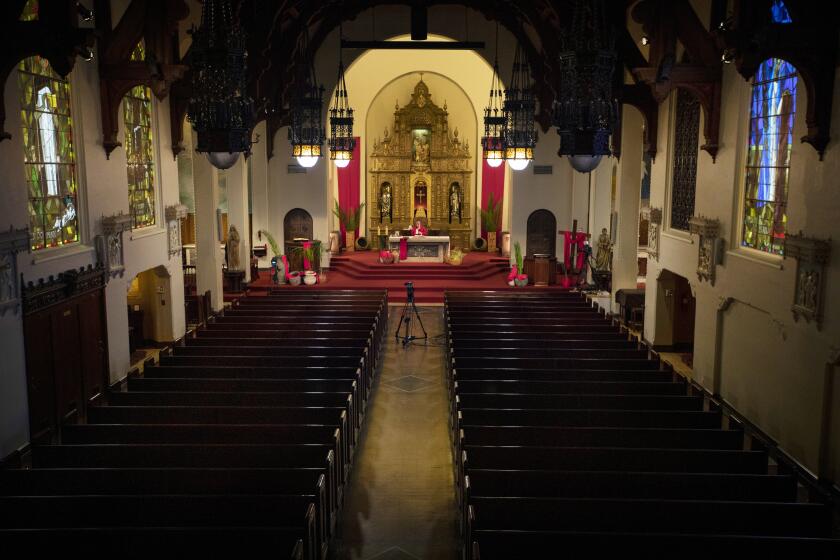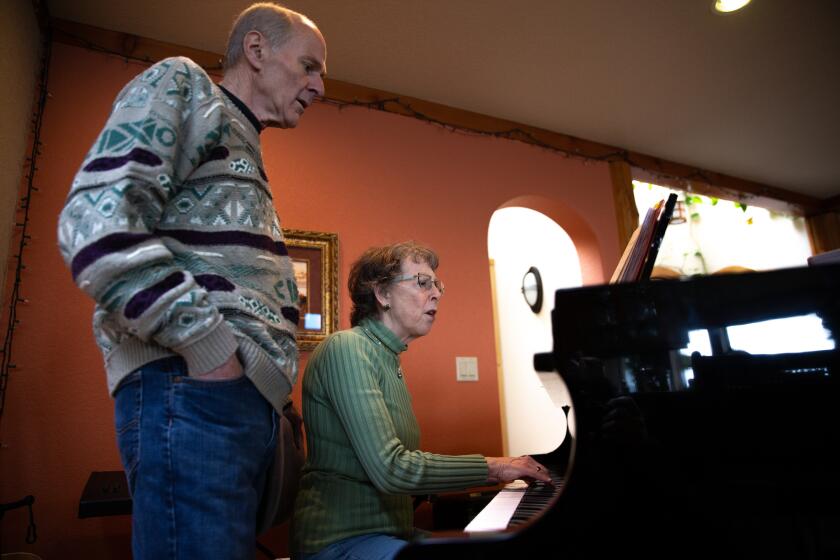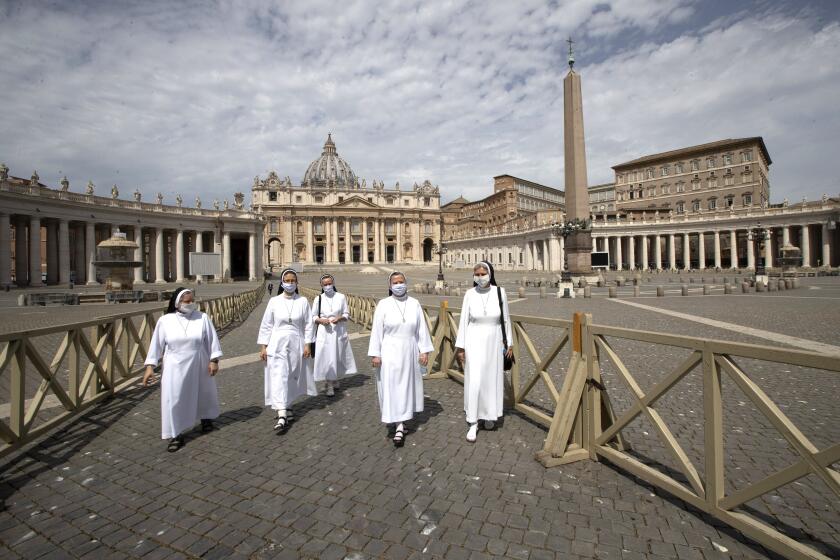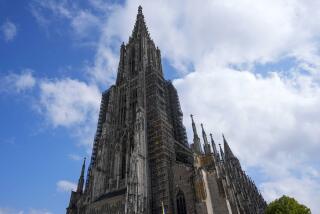No hymns, no Communion: Germany’s reopened churches offer a road map, but a new outbreak shows the risks
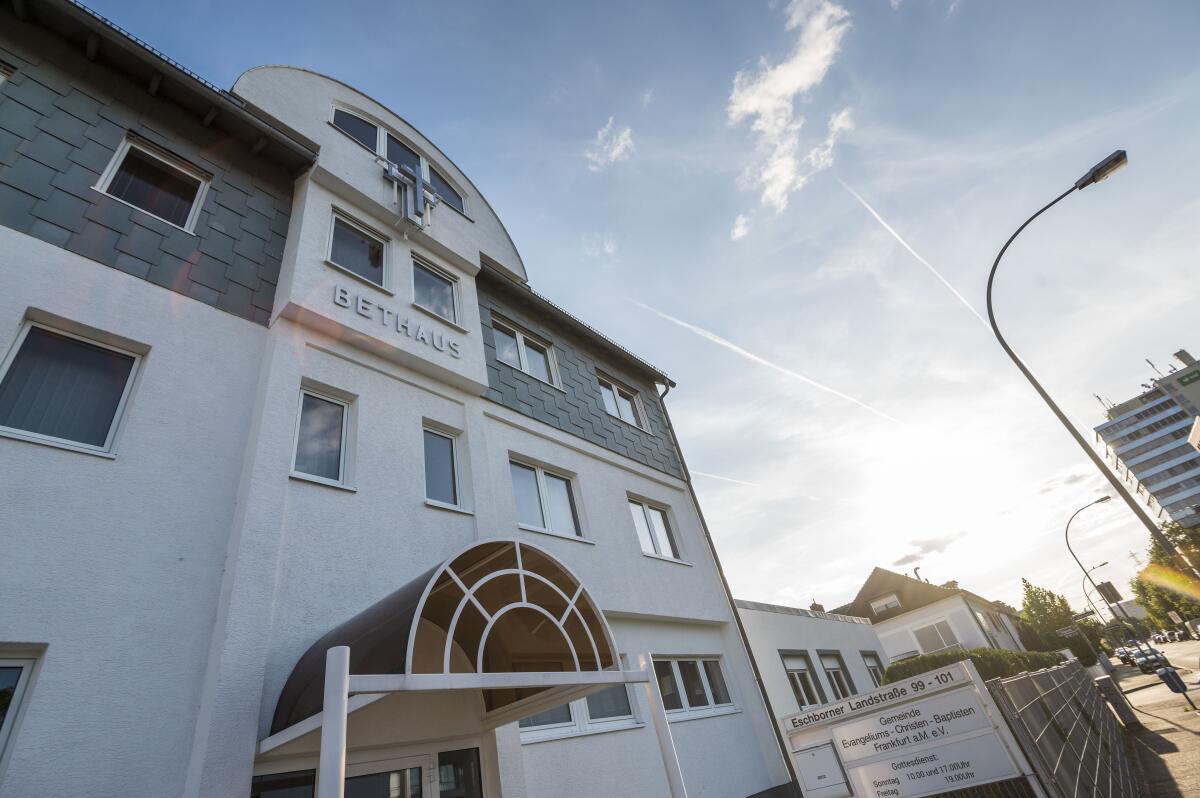
BERLIN — Prayerful ritual is as old as religion itself: Gather the faithful. Make a joyful noise.
But the coronavirus has changed the face of worship the world over, transforming churches and other houses of worship into potentially dangerous vectors of disease.
Now, as many Americans weigh how and whether to return to church, Western Europe, where the outbreak hit weeks before the United States and is mostly ebbing, offers a possible glimpse of the way forward — one full of hope but also of risk.
A prime example is Germany, widely hailed as a model in its handling of the coronavirus crisis. Its death toll is a fraction of that in Britain, Italy or Spain, even though its population is larger.
German houses of worship, including more than 45,000 churches, were allowed to reopen from May 9, following a seven-week shutdown. The resumption of communal religious life has been welcomed by many, despite coming laden with rules, such as social spacing and a ban on singing, to minimize the spread of the coronavirus.
But in a demonstration of the dangers that continue to lurk unseen, more than 100 attendees of a church service in southern Germany have become infected with the virus, at least some of them at the gathering, possibly because they failed to adhere to the government’s guidelines on how to worship safely. The outbreak has served as a sobering reminder that a complete return to pre-coronavirus practices is still not a viable option for the sake of public health.
“We have to remain cautious,” said Werner Otto, a Roman Catholic priest in Frankfurt, Germany’s financial hub and the central city where the new flare-up occurred. “I personally don’t like all the safeguards, but they’re still necessary.”
The state’s plan will alter religious services in dramatic ways, and it’s unlikely to end the push by some churches to allow more regular worship operations.
About 50 million of Germany’s 82 million people identify as Christian, and some 4.7 million as Muslim. Jews, a large and thriving community before the Holocaust, number about 200,000.
For Claudius Wagemann, a member of a Catholic congregation in Frankfurt, going back to church was fulfilling, but also frustrating.
Under government guidelines, parishioners are strongly encouraged to wear face coverings while taking their place in disinfected pews. Sitting six feet apart is required, a rule that has kept Wagemann’s church — named for Germany’s patron saint, Boniface — at half capacity. Communion can only be taken by the celebrating priest.
Churchgoers also must register their names and phone numbers — a highly sensitive matter in Germany, where privacy laws are strong and memories still linger of the obsessive surveillance methods of East Germany’s secret police, the Stasi.
A 47-year-old political science professor at the city’s Goethe University, Wagemann was happy to be back, but sad to remain silent when it would normally be time for hymns and hosannas.
Singing can spread the virus through respiratory droplets — a phenomenon well documented elsewhere, including the now-famous case of a choir practice in Washington state — and is forbidden.
“Something was missing from the atmosphere,” Wagemann lamented. “The spirit of participation wasn’t really there, without being able to sing.”
The deadly outbreak among members of a choir has stunned health officials, who have concluded that the virus was almost certainly transmitted through the air from one or more people without symptoms.
In the United States, President Trump urged the opening of churches even as the pandemic was taking hold, initially expressing hopes for full churches on Easter Sunday, April 12. That proved unrealistic, but Trump has more recently threatened to overrule governors who do not immediately lift church-closing orders.
Church leaders across the United States have also filed lawsuits against their state governments demanding the right to operate as normal.
Partial reopenings of houses of worship were planned this weekend in many areas, including California, which has released guidelines saying churches can hold services with a maximum of 100 people, or at 25% capacity, whichever is smaller. But the state also urged that online services remain available.
In Germany last month, there was resentment in some circles when churches were told to stay closed while certain shops and businesses — including bicycle shops, bookstores and car washes — began serving customers, albeit with precautions.
Similar tensions between church and state have sprung up elsewhere in Europe. Catholic bishops in Italy excoriated the government for not allowing public Masses when the country started easing its lockdown earlier this month. A court in France ordered the government there to lift its blanket ban on worship services, calling it a “disproportionate” measure at a time when other coronavirus restrictions were being loosened. Eight priests have been jailed in the small Balkan nation of Montenegro after leading a procession with thousands of people who neither wore masks nor maintained social distance.
Religious freedom is a particularly fraught topic in Germany, and not only because of the Holocaust, when Nazis killed millions of Jews. East Germany, which was under Communist rule from the end of World War II until 1989, was officially atheist, but church authorities managed to reach an accommodation with the authorities.
Chancellor Angela Merkel, raised in the East, is the daughter of a pastor, but even three decades after German reunification, religion plays relatively little role in public life in that part of the country.
In the weeks before German churches were allowed to open their doors, many religious leaders lobbied hard for an easing of restrictions. One Catholic group in Berlin took the government to court before the new guidelines were handed down.
But hopes for a smooth return to churchgoing suffered a setback when word emerged of an outbreak centered on the congregation of a Baptist church in Frankfurt after a May 10 service.
Of 180 worshipers in attendance, up to 130 became infected, according to German news reports. Those reportedly hospitalized included the church’s leader and his deputy.
The church, the Evangelical Christian Baptist Congregation, initially insisted that rules were followed. But its leaders eventually acknowledged that they had allowed singing, and had not urged the wearing of face masks.
“With hindsight, it would have been appropriate for us to wear mouth-and-nose protection covers during the service, and to refrain from singing together,” the church said in a statement on its website Monday.
Although the service was blamed as the likely source of infection, health authorities in Hesse state, where Frankfurt is located, have since noted that many of those in the congregation also attended family-style dinners afterward. Rene Gottschalk, the head of the Frankfurt health office, said that the authorities believed most were infected following the church service, and not during it.
Italy and the Vatican are opening a new post-lockdown phase in the virus emergency.
Otto, the priest, said attendance is still low at his church, but that even senior citizens, who are more vulnerable to infection, are returning. Families with young children were less in evidence, perhaps worried about being able to corral youngsters and maintain proper physical distance.
“You can tell that a lot of people have really missed coming to their church services,” Otto said.
To mollify those unhappy over the ban on singing, Otto introduced more organ music, and said he was pleased when congregants praised the celebratory effect.
But worshipers such as Wagemann, the professor, still yearn for sacred songs. He particularly grieved over a missed Easter favorite — “Das Grab ist leer,” or “The Grave Is Empty” — about Christ risen from the dead.
“It’s just such a big part of the tradition for me,” he said. “I wish we would be allowed to sing with a face mask on!”
Kirschbaum is a special correspondent. Times staff writer Laura King contributed to this report.
More to Read
Sign up for Essential California
The most important California stories and recommendations in your inbox every morning.
You may occasionally receive promotional content from the Los Angeles Times.
